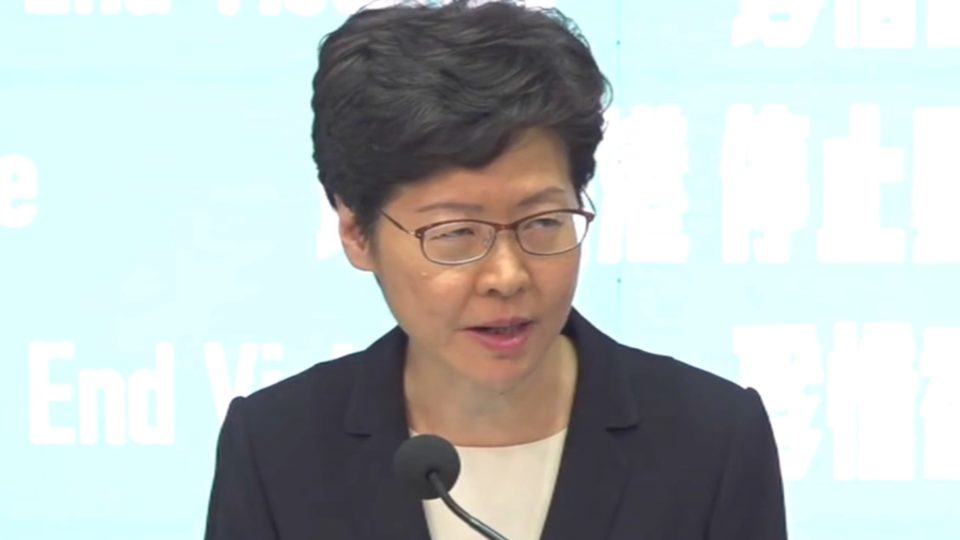Chief Executive Carrie Lam this afternoon invoked Hong Kong’s draconian emergency powers law — last used more than 50 years ago — in declaring a ban on face masks in public places in a bid to clamp down on the city’s long-running protest movement.
Word of the ban first leaked yesterday afternoon, immediately sparking fears of further restrictions on freedoms and raising questions as the constitutionality of the nearly century-old law being invoked — the Emergency Regulations Ordinance (ERO) — in a post-colonial context.
Still, the government forged ahead with the plans, with a copy of the text of the regulation declaring that “A person must not use any facial covering that is likely to prevent identification” while attending an unauthorized public gathering. Failure to abide by the regulation, enacted without the approval of the city’s legislature, can be punished by a fine and up to a year in prison.
Apparently aware of the gravity of invoking the ERO, Lam today said it was “not an easy decision to legislate to ban masks, but given the current situation in Hong Kong, this is a necessary decision.”
“In the past four months, we’ve seen that all protesters that have carried out vandalism have covered their face,” she added. “They’ve become more and more daring, so we believe the regulation on face covering regulation is appropriate.”
Somewhat confoundingly, Lam insisted that the city was not in a state of emergency, “but at the same time, the situation we’ve seen in Hong Kong satisfies this [ERO] requirement of endangering public order.”
“I hope the public will support what we are doing,” she added.
The text of the ban does allow for some exceptions for masks worn for religious, medical, and occupational safety reasons. The law also empowers police to require people wearing masks to remove them, and to remove the masks themselves if the person refuses.
Refusal to remove a mask is also an offense under the new rule, and is punishable by up to six months in prison.
https://twitter.com/sumlokkei/status/1180016606799253509
Concerns over the ban were such that hundreds of people staged impromptu protests this afternoon in Central and elsewhere in the city in protest of the plans, and word of the ban has prompted widespread skepticism as to the ERO’s legality post-handover.
Webb-site, a news and analysis site run by prominent activist-investor David Webb, published a report today arguing that the ERO’s provisions bypassing the Legislative Council in enacting regulations renders it fundamentally unconstitutional.
“The ERO is so broad, allowing [the chief executive] to “make any regulations whatsoever which he may consider desirable in the public interest”, that it amounts to a transfer of powers which the [Basic Law] does not contemplate,” the analysis reads. “As such, the ERO may be void because it is unconstitutional: no local law can breach the BL.”
The analysis goes on to call for a swift judicial review of any mask ban, warning that if such a review fails, “then this may be the beginning of a draconian crackdown.”
The ERO grants almost unchecked power to the chief executive to not only enact regulations, but to compel forced labor, censor the media, and even seize control of the city’s ports. It was last used to quell the 1967 Leftist Riots, which dragged on for months and saw dozens of people killed, some of them in a citywide bombing campaign.
Human Rights Watch’s China director, Sophie Richardson, also condemned the ban.
“Hong Kong authorities should be working to create a political environment in which protesters do not feel the need for masks — not banning the masks, and deepening restrictions on freedom of expression,” she said in a statement.




